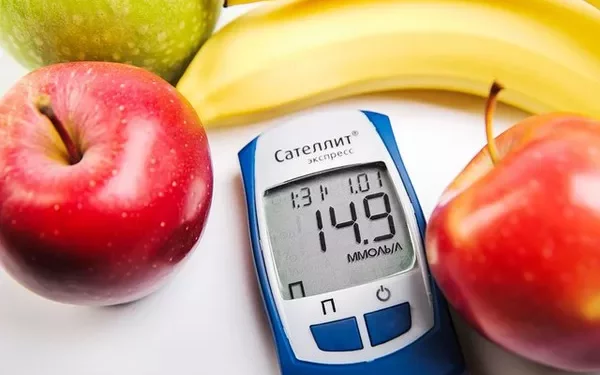Hyperglycemia, commonly known as high blood sugar, is a condition characterized by an excess of glucose in the bloodstream. While diabetes is the most well-known cause of hyperglycemia, it’s crucial to understand that elevated blood sugar levels can occur in individuals without diabetes as well. In this article, we will explore the various causes, symptoms, risk factors, and management strategies for hyperglycemia in non-diabetic individuals.
Understanding Hyperglycemia
Before delving into hyperglycemia without diabetes, it’s important to grasp the fundamentals of blood sugar regulation. Glucose, a type of sugar, is the primary source of energy for cells in the body. When we consume carbohydrates, they are broken down into glucose, which then enters the bloodstream. In response, the pancreas releases insulin, a hormone that helps transport glucose from the blood into the cells, where it can be used for energy.
Hyperglycemia occurs when there is either insufficient insulin production or ineffective use of insulin, leading to elevated blood glucose levels. In individuals with diabetes, this imbalance is typically a result of either type 1 diabetes, where the pancreas produces little to no insulin, or type 2 diabetes, where the body’s cells become resistant to insulin’s effects.
However, hyperglycemia can also occur in individuals without diabetes due to various factors, including medical conditions, medications, lifestyle choices, and stress. Let’s explore some of these causes in more detail.
Medical Conditions
Several medical conditions can lead to hyperglycemia in non-diabetic individuals. One common example is pancreatic disorders such as pancreatitis, which can impair the pancreas’s ability to produce insulin. Hormonal imbalances, such as those seen in Cushing’s syndrome or acromegaly, can also contribute to elevated blood sugar levels.
Additionally, certain infections, particularly those accompanied by inflammation or stress on the body, can trigger a temporary rise in blood glucose levels. Examples include urinary tract infections, respiratory infections, and sepsis. Inflammatory conditions such as rheumatoid arthritis and systemic lupus erythematosus may also be associated with hyperglycemia.
Liver disease, particularly non-alcoholic fatty liver disease (NAFLD) and cirrhosis, can interfere with glucose metabolism and lead to hyperglycemia. Furthermore, conditions affecting the adrenal glands, such as adrenal insufficiency or Cushing’s syndrome, can disrupt hormone levels and contribute to insulin resistance.
Medications
Certain medications can induce hyperglycemia as a side effect. Corticosteroids, commonly prescribed for conditions such as asthma, arthritis, and autoimmune diseases, can increase blood sugar levels by promoting gluconeogenesis (the production of glucose from non-carbohydrate sources) and reducing insulin sensitivity.
Other medications known to affect blood glucose levels include some antipsychotics, beta-blockers, diuretics, and protease inhibitors used in the treatment of HIV/AIDS. Patients taking these medications should be monitored closely for signs of hyperglycemia, and adjustments to their treatment regimen may be necessary.
Lifestyle Factors
Unhealthy lifestyle choices can also contribute to hyperglycemia in non-diabetic individuals. A diet high in refined carbohydrates, sugars, and saturated fats can lead to spikes in blood sugar levels, especially when combined with a sedentary lifestyle and excess body weight.
Physical inactivity can impair insulin sensitivity and glucose uptake by muscle cells, leading to higher blood glucose levels over time. Stress, whether acute or chronic, can trigger the release of stress hormones like cortisol and adrenaline, which can raise blood sugar levels by promoting gluconeogenesis and inhibiting insulin secretion.
Symptoms and Complications
The symptoms of hyperglycemia in non-diabetic individuals are similar to those experienced by people with diabetes and may include:
- Increased thirst and urination
- Fatigue
- Blurred vision
- Headaches
- Difficulty concentrating
- Slow wound healing
- Recurrent infections, especially yeast infections
- Unexplained weight loss
If left untreated, hyperglycemia can lead to serious complications such as diabetic ketoacidosis (DKA) or hyperosmolar hyperglycemic state (HHS), both of which are medical emergencies requiring immediate attention. DKA typically occurs in individuals with type 1 diabetes but can rarely occur in those without diabetes under certain conditions.
Diagnosis and Management
Diagnosing hyperglycemia in non-diabetic individuals often involves a combination of clinical evaluation, blood tests, and medical history review. A fasting blood glucose test, oral glucose tolerance test (OGTT), or random blood glucose test may be performed to assess blood sugar levels. Additionally, hemoglobin A1c (HbA1c) levels may be measured to evaluate long-term glucose control.
Once diagnosed, the management of hyperglycemia in non-diabetic individuals focuses on addressing the underlying cause while also implementing lifestyle modifications and, in some cases, medication therapy. For example:
Addressing Underlying Medical Conditions: Treating any underlying medical conditions such as pancreatitis, hormonal imbalances, or infections is essential in managing hyperglycemia.
Medication Management: If hyperglycemia is medication-induced, adjusting or discontinuing the offending medication may be necessary. However, this should only be done under the guidance of a healthcare professional.
Lifestyle Modifications: Adopting a healthy diet low in refined sugars and carbohydrates, engaging in regular physical activity, maintaining a healthy weight, and managing stress can help improve blood sugar control.
Monitoring: Regular monitoring of blood glucose levels, particularly in high-risk individuals, can help detect hyperglycemia early and guide treatment decisions.
Medication Therapy: In some cases, medications such as insulin or oral glucose-lowering agents may be prescribed to help lower blood sugar levels and improve insulin sensitivity.
Prevention
While not all cases of hyperglycemia in non-diabetic individuals can be prevented, adopting a healthy lifestyle can significantly reduce the risk. This includes:
- Eating a balanced diet rich in fruits, vegetables, whole grains, and lean proteins
- Engaging in regular physical activity, such as brisk walking, cycling, or swimming, for at least 150 minutes per week
- Maintaining a healthy weight and avoiding excess body fat, particularly around the abdomen
- Limiting the intake of sugary beverages and processed foods
- Managing stress through relaxation techniques such as deep breathing, meditation, or yoga
See also: What Can Cause Hyperglycemia Other Than Diabetes
Conclusion
In conclusion, hyperglycemia can occur in non-diabetic individuals due to various factors, including medical conditions, medications, lifestyle choices, and stress. Recognizing the signs and symptoms of hyperglycemia is essential for early detection and management to prevent complications. By addressing underlying causes, making lifestyle modifications, and, if necessary, implementing medication therapy, individuals can effectively manage and prevent hyperglycemia, leading to better overall health and well-being. If you experience symptoms of hyperglycemia, consult with a healthcare professional for proper evaluation and treatment.
Related topics:
Do Beta Blockers Cause Hypoglycemia or Hyperglycemia?
























